



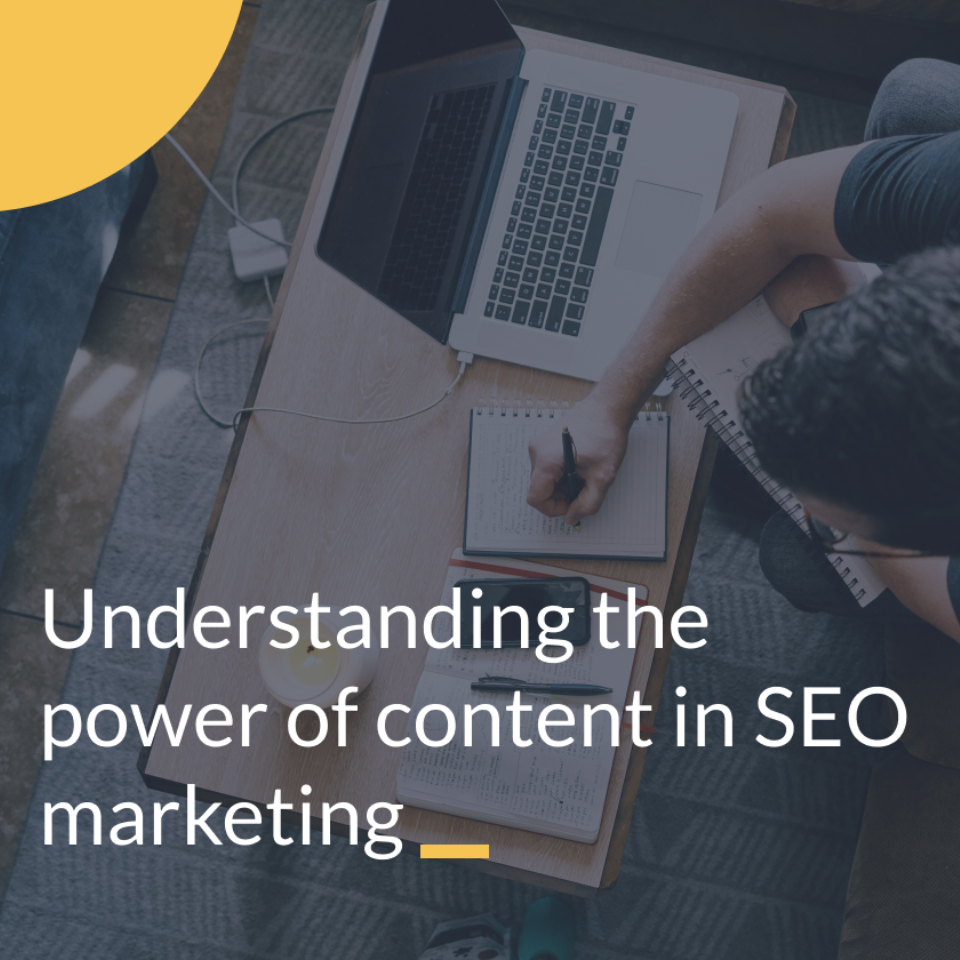



Have you ever thought about why content strategies are important for your business? Aside from keeping your target audience engaged and cementing your brand as a voice of authority in your industry, content is also one of the most important parts of optimising your SEO. In this article, we’ll answer some questions you might have about how to create content that is properly fuelling your visibility, engagement, and ultimately, conversions.
Why is content so important for SEO?
When it comes to SEO, content is the primary means through which websites communicate with search engines and users. Search engines like Google constantly scour the web for fresh, relevant, and authoritative content to deliver the best possible results to their users. Websites that consistently produce high-quality content are more likely to rank higher in search engine results pages (SERPs) and attract organic traffic, as this is the most important Google algorithm ranking factor, weighted at 21%. Marketers are already making a shift to recognise the importance of content, with 72% of B2C marketers producing more content than a year ago.

What is my audience looking for?
Have you established who your target audience is? If not, that’s a vital place to start, because if you don’t know who you’re writing for, you don’t know what they want to read.
Content is not just about attracting visitors to a website; it’s also about engaging them and guiding them through the conversion funnel. Whether the goal is to generate leads, drive sales, or increase brand awareness, content plays a pivotal role in nurturing relationships with prospects and customers.
Start by understanding what your audience’s interests, pain points, and aspirations are, and write content that resonates with this.
It’s also important to consider what medium of content they’re looking for. Don’t feel constrained to writing blog posts or articles, as Google is likely to include videos in search results too and has even been experimenting with adding podcasts in the SERP.
How is my content being found?
After establishing what your audience is looking for, you need to know how they’re looking for it. For example, voice search queries are typically longer than written ones and more likely to come in the form of a question. Have you ever just googled the words “weather forecast” knowing that Google will fill in the rest? If you were asking Alexa, you more likely would have said “What’s the weather like today?”
You might already be aware that keywords are important when it comes to SEO, but things have changed, and it’s no longer a case of needing to clunkily include the same word over and over again to rank higher in SERPs. As explained by an example from ClearVoice.com, “if you type “how to find good fundraising software” in a search bar, Google won’t just find articles with the keywords “good fundraising software” or “find fundraising software.” Instead, its algorithm will determine whether you want to purchase good fundraising software and offer topic options like “Top 7 Fundraising Software Options Your Nonprofit Should Know” or “Best Fundraising Software 2022.”
However, this is just a starting point, as there are so many things that factor into how your content will be ranked, as shown in this pie chart:
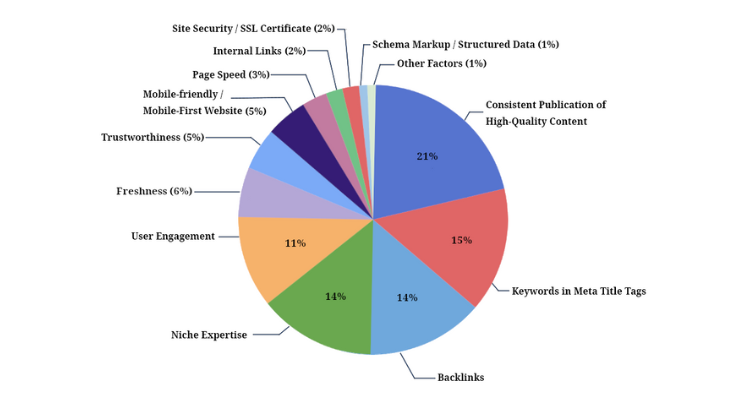
How can I establish trust?
It’s not just your audience that needs to think you’re trustworthy, search engines do too. They want to ensure users are getting good content that’s reliable, informative, and interesting.
So, if you’re hungry for good quality content, you’ve got to remember to E-E-A-T.
That stands for Experience, Expertise, Authoritativeness and Trustworthiness, which form the quality rater guidelines set out by Google. Let’s break down what each one means.
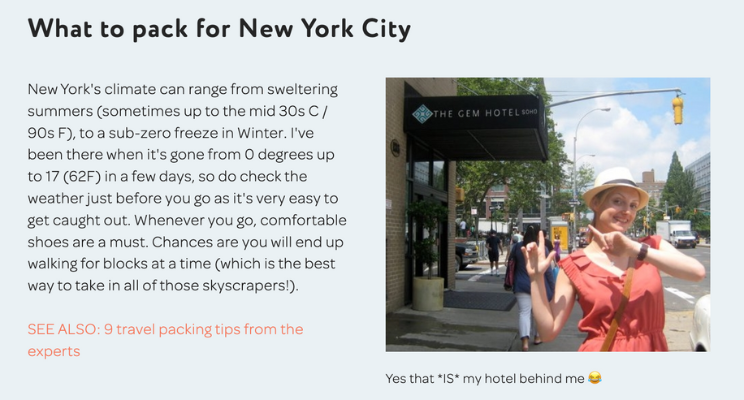
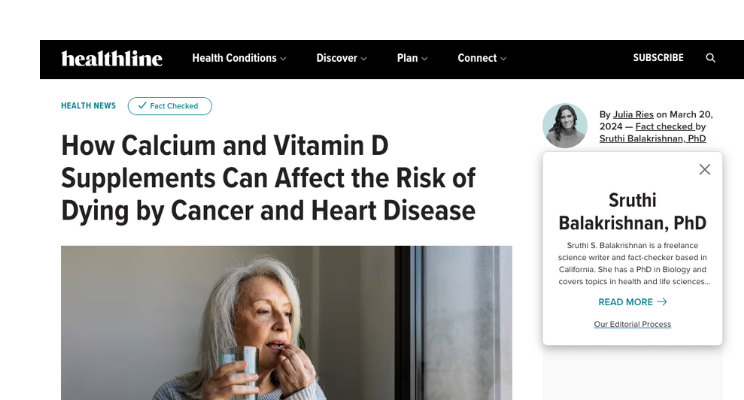
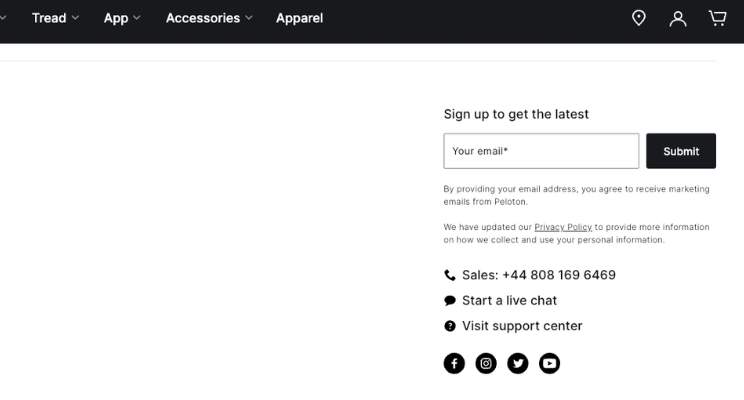
Is my content performing well?
Establishing your content strategy is just the first step. It’s important to set KPIs and continually evaluate the metrics of your content against this. If your content performance is falling short of the KPIs you’ve set, it’s time to reevaluate. Are your goals too much of a stretch, or do you need a different approach to ignite the interest of your target audience?
Another consideration is content length. Typically, longer content ranks higher in Google’s search results, but that doesn’t mean you should dismiss shorter-form content. If one of your aims is for your content to be widely shared, shorter and easily digestible pieces are the way to go.
If you’d like to learn more about creating content that drives traffic to your site, get in touch to discuss working together.



Our dedicated team dives deep, delivering relentless value and aligning digital solutions with your goals in a way that guarantees success
Learn more